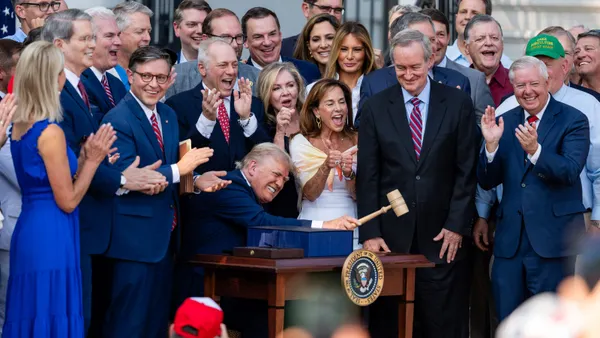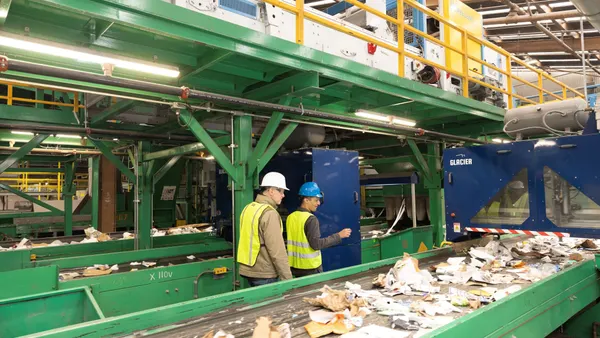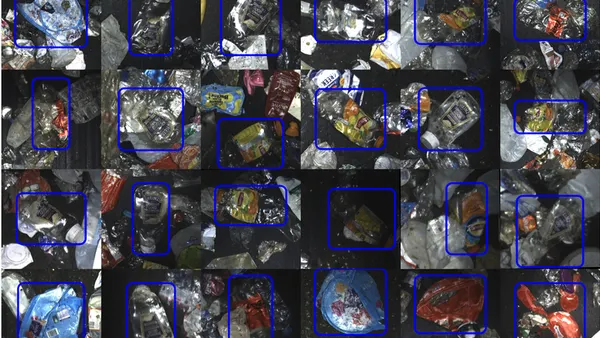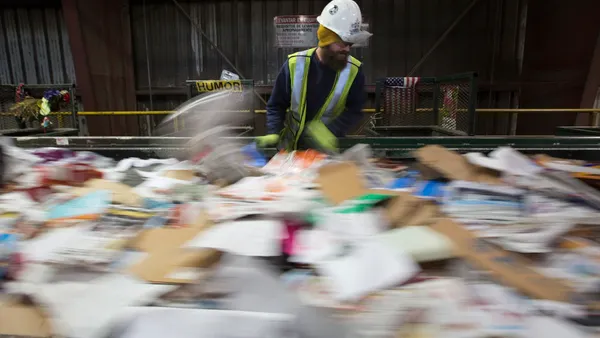Dive Brief:
- Indianapolis residents, officials, and advocates met Wednesday to discuss a recycling plan for the city after the Indiana Court of Appeals ruled against a deal with Covanta for a $45 million single-stream facility where Covanta, who incinerates the city’s trash, would have separated recyclables from garbage. Mayor Joe Hogsett, who favored the Covanta deal, reiterated his commitment to corral the public support and input, according to Indy Star.
- Currently, single-family households can pay $6.75 a month, or $81 a year, for curbside recycling, but only 10% participate. Apartment dwellers have to go to drop-off centers, though some landlords may offer services.
- Most of the roughly 50 meeting attendees were clear; they want a recycling plan—one that’s accessible. And they want for the public to be educated about such a program’s benefits. While no specific future plans were reported, Hogsett said, "I couldn't be happier to be here with all of you today to talk about how to write the next chapter in our city’s story," according to the Star.
Dive Insight:
The Covanta one-bin proposal was a controversial one, believed to be a weak plan to try and divert from the landfill, with contamination as a big concern.
Meanwhile, Indianapolis has some of the lowest recycling rates and poorest recycling infrastructure among all major U.S. cities, with only 5.8% of residential waste recycled—a dramatic contrast to the 34% national average. Program cost has also been an issue; currently Indianapolis residents pay about a $111 tax levy for trash pickup and a $32 fee if they don’t pay for recycling. Of three neighboring areas with recycling included with trash service, Carmel's levy is about $119, Greenwood's is $162, and Lawrence charges $180.
Many have expressed a need for a culture change, with Hogsett leading the way. However Councilman Jeff Miller was not as enthusiastic, commenting "Recycling trash isn’t a terrible idea. It’s not even a bad idea. But it’s not a progressive idea. … It's a fallback plan," as reported in the Star. And without collaboration across the entire city, there may not be much improvement seen in the near future.









